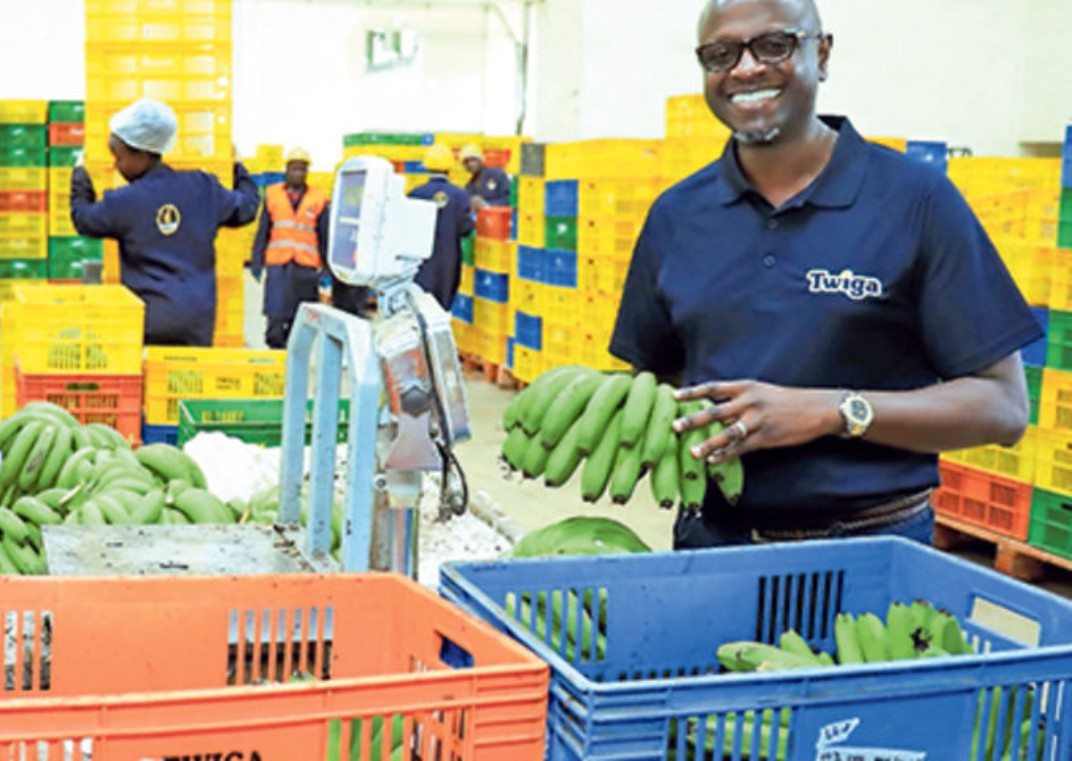
Twiga Foods, a leading fresh produce distribution platform in Kenya, has announced the completion of its capital raise to fund its transformation and growth plans.
The company has also paid off its long outstanding dues to its suppliers, who have been patiently waiting for their payments.
This announcement comes after a year and a half of challenges and difficulties for Twiga Foods, which faced a funding crunch, a restructuring process, and a public backlash.
The company had to change its strategy and business model, to adapt to the new environment and survive.
Co-founder and CEO of Twiga Foods, Peter Njonjo, recently shared some of the insights and learnings that he gained from this experience, and how the company managed to overcome the obstacles that threatened its survival.
The rise and fall of the start-up boom
Twiga Foods was founded in 2014 with a vision to create an efficient and transparent supply chain for fresh produce in Kenya, connecting farmers directly to retailers.
The company leveraged technology and data to optimize its operations and offer quality products at competitive prices.
It also aimed to reduce post-harvest losses, improve food security, and increase incomes for both farmers and retailers.
Twiga Foods attracted the attention and support of several local and international investors, who saw the potential and impact of its platform.
Between 2015 and 2019, it raised over $50 million in equity and debt financing, from reputable sources such as the International Finance Corporation, TLcom Capital, DOB Equity, and Goldman Sachs.
It used this capital to fuel its rapid growth and expansion, both in terms of product portfolio and geographic coverage.
By early 2020, Twiga Foods had become one of the largest and fastest-growing start-ups in Kenya, with annual revenues exceeding $100 million.
It was also ranked among the top 10 companies by revenue in the Nairobi Stock Exchange.
Twiga Foods had built a strong brand and reputation in the market, and was preparing for its Series D round of funding, which would enable it to consolidate its position in Kenya and enter new markets in Africa.
However, in March 2020, the global start-up landscape changed dramatically, due to the unexpected rise of inflation and interest rates in the US.
This triggered a shift in investor sentiment and appetite, especially for emerging markets, where the risks and uncertainties were higher.
The funding sources that Twiga Foods had relied on for its growth dried up, and the company found itself in a precarious situation. It had a rocket ship that was about to break into orbit, but it had run out of fuel.
It had to make some tough decisions and trade-offs, to ensure its survival and sustainability.
The painful process of restructuring and pivoting
As Twiga Foods faced the reality of the funding crunch, it realized that it had to change its strategy and business model, to adapt to the new environment.
This transformation involved addressing several key aspects:
Financial Independence
- Reduced dependence on external financing.
- Focused on generating internal cash flows and profits.
Operational Optimization
- Implemented cost-cutting measures.
- Optimized resources to improve efficiency and margins.
Diversification and Risk Mitigation
- Diversified revenue streams and customer segments.
- Aimed to reduce exposure and vulnerability.
Innovation and Value Creation
- Prioritized innovation to differentiate products and services.
- Focused on creating value and loyalty.
Alignment with Mission and Vision
- Undertook these changes while maintaining its mission and vision.
- Committed to fulfilling obligations to stakeholders.
Despite the strategic shift being imperative, the process was far from easy or smooth.
It entailed a significant learning curve, involving trial and error, experimentation, and continuous improvement.
This journey was marked by substantial pain and sacrifice, affecting both the company and its stakeholders.
The challenges faced by Twiga Foods during this process were multifaceted.
Internal Dynamics
- A growing gap of understanding and alignment among management, the board, and employees regarding the current situation and the required actions.
External Stakeholder Relations
- Rapid erosion of credibility and trust with external stakeholders (minority shareholders, lenders, suppliers, government, and customers).
- Disappointment or feelings of betrayal by stakeholders due to decisions and performance.
Balancing Short-Term and Long-Term Goals
- Constant pressure and stress to balance short-term and long-term objectives and interests.
- Navigated uncertainty and volatility in the market and the industry.
The recovery and revival of Twiga Foods
Despite the hardships and hurdles, Twiga Foods did not give up on its vision and mission.
The company continued to work hard and smart, to find solutions and opportunities, to improve and grow.
Simultaneously, ongoing engagement with stakeholders persisted, facilitating the explanation and justification of its actions while fostering efforts to restore and rebuild relationships.
After a year and a half of determined struggle and sacrifice, Twiga Foods achieved a breakthrough.
Securing a new round of funding from both existing and new investors who believed in its potential, the company utilized these funds to fuel its transformation and growth plans.
These plans encompassed expanding its product portfolio, enhancing its technology platform, and venturing into new markets.
Notably, the funding also addressed long outstanding dues to suppliers, who had patiently awaited their payments.
The completion of the capital raise and the settlement of supplier payments marked a significant milestone for Twiga Foods, symbolizing its recovery and revival.
Positive feedback and recognition from the market and industry underscored the company’s resilience and innovation.
Expressing gratitude, CEO Peter Njonjo has extended appreciation to all stakeholders who supported and trusted the company during challenging times.
He conveys optimism about the company’s future, citing a clear vision and strategy, a robust team and culture, a loyal customer base, and positive social impact as key strengths.
Twiga Foods embarks on a new chapter, guided by a vision and strategy centered on profitability and sustainability.
Kenyan Business Feed is the top Kenyan Business Blog. We share news from Kenya and across the region. To contact us with any alert, please email us to [email protected]













